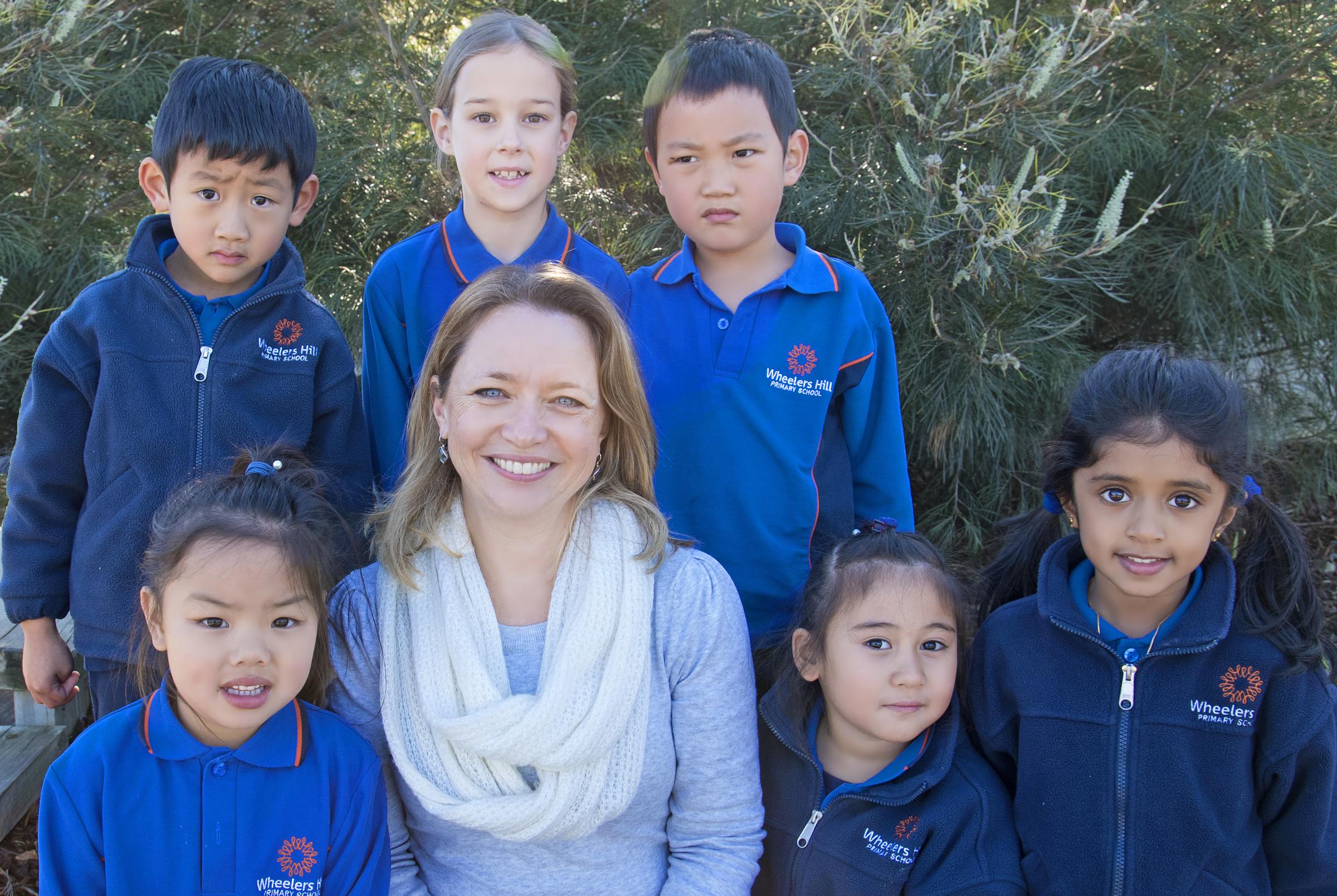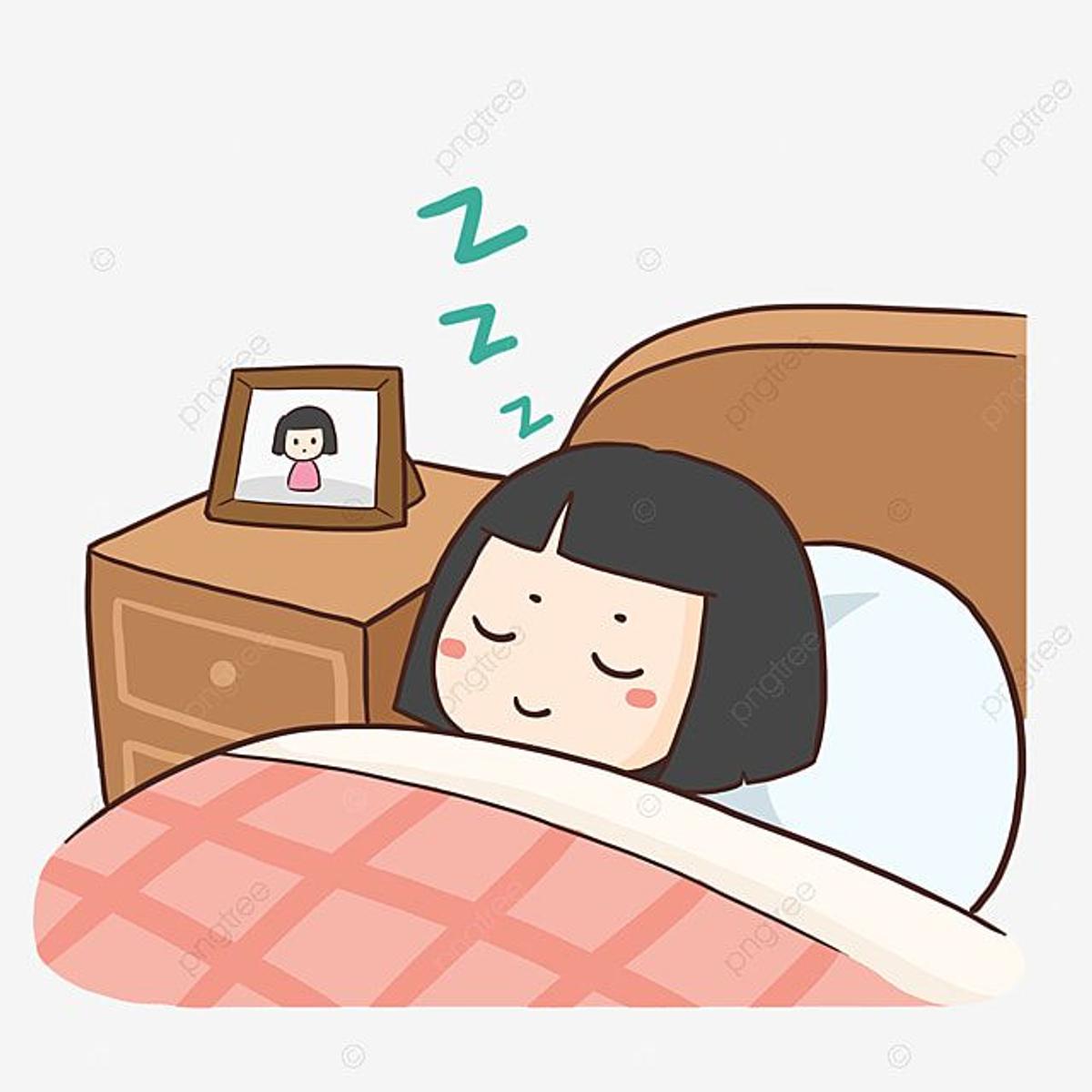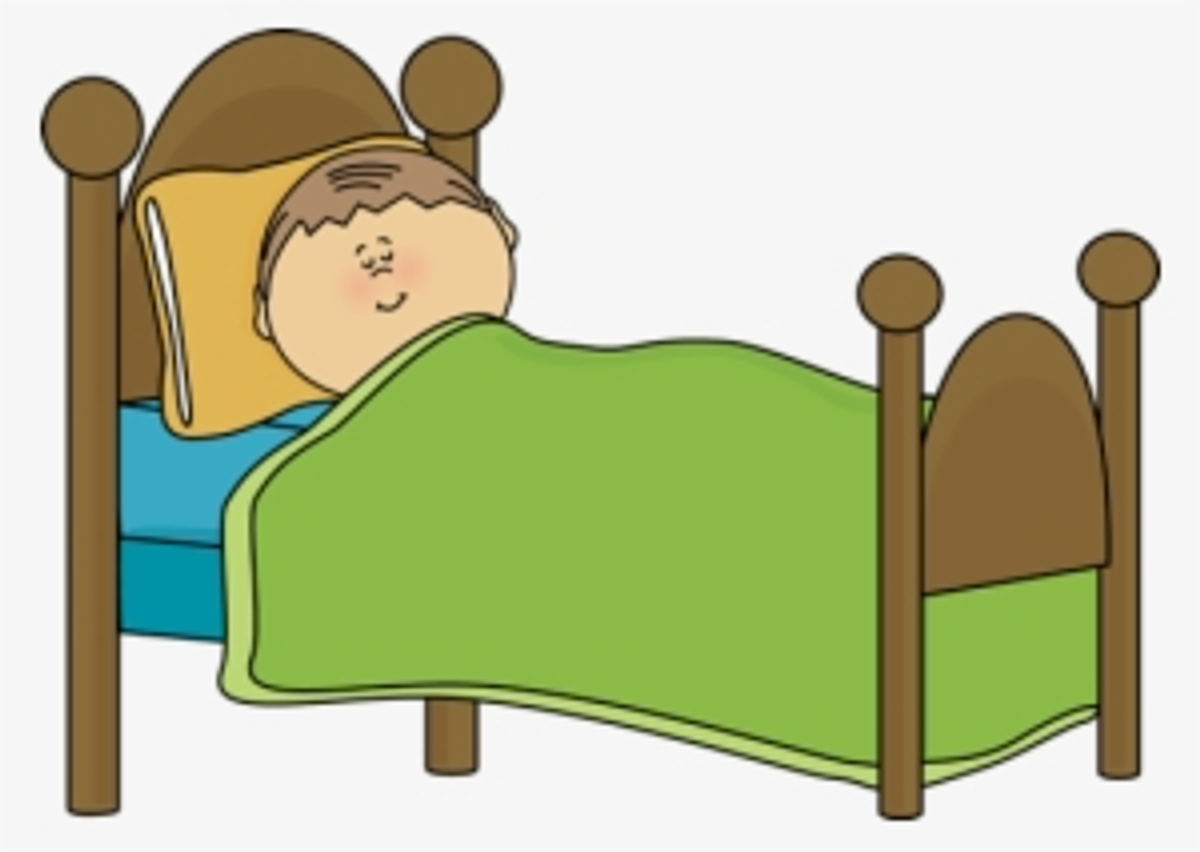Assistant Principal's Report Katrina Spicer - Wellbeing

12th May 2023
IS YOUR CHILD GETTING ENOUGH SLEEP?
Getting a good night's sleep is vitally important for a child's development. A child who does not get enough sleep may have trouble with focus and concentration, irritability, growth and mood. Their friendships may be affected and they may be unable to perform at their best in the classroom.
It is common knowledge that children require more sleep than adults, but just how much does a primary school-aged child need?
WHY SLEEP IS IMPORTANT FOR CHILDREN AGED 5-11 YEARS
When your child sleeps well, your child will be more settled, happy and ready for school the next day. Good-quality sleep helps your child concentrate, remember things, regulate emotions and behave well. This all helps your child learn well.
Getting enough sleep also strengthens your child’s immune system and reduces the risk of infection and illness.
SLEEP: WHAT CHILDREN NEED
At 5-11 years, children need 9-11 hours sleep a night. For example, if your child wakes for school at 7 am and needs approximately 10 hours sleep per night, your child should be in bed before 9 pm.
Some children fall deeply asleep very quickly when they go to bed. Others sleep lightly, fidgeting and muttering for up to 20 minutes, before getting into deep sleep.
Children have different kinds of sleep during the night. The first few hours of sleep are usually the deepest. Most dreams happen in the second half of the night.
Puberty affects children’s sleep. Sleep for children around 12 years and older might mean going to bed and waking up later, but they still need plenty of good-quality sleep.
HOW TO HELP CHILDREN SLEEP WELL
A good night’s sleep is about getting to sleep, staying asleep and getting enough good-quality sleep. Here are some ideas that can help your child get the sleep they need.
Bedtime routine
A bedtime routine is very important at this age. It helps your child wind down from the day.
For example, a child who normally goes to bed at 7.30 might have a bedtime routine that looks like this:
- 6.45 pm: put on pyjamas, brush teeth, go to the toilet.
- 7.15 pm: quiet time in the bedroom with a book and a bedtime story or quiet chat.
- 7.30 pm: goodnight and lights out.
Relaxing before bed
After a big day at school, your child might still be thinking about the day’s events and worries. If your child’s mind is still busy at bedtime, it can cause a restless night or bad dreams.
You can help your child settle and relax for sleep by keeping activities quiet in the hour before bed. For example, you could play gentle music or read a story together. Making a bath part of your child’s bedtime routine can also help with relaxation.
Relaxing before bed also helps with better sleep for pre-teens and teenagers.
Good sleep habits
Your child might sleep better at night if they:
- keep regular sleep and wake times, even on the weekend
- turn computers, tablets and TV off an hour before bedtime
- have a quiet and dimly lit place to sleep
- get plenty of natural light during the day, especially in the morning
- avoid caffeine in tea, coffee, sports drinks and chocolate, especially in the late afternoon and evening.
Some sleep problems are behaviour issues that you can manage at home with good sleep habits. It’s a good idea to talk with your GP if you’ve been trying good sleep habits and they don’t seem to be helping. Sleep medications usually aren’t the solution to children’s sleep problems.
ABOUT SLEEP AND LEARNING
Good-quality sleep helps your child concentrate, remember things and behave well. This helps your child to be a successful learner.
Poor sleep or not enough sleep affects concentration, memory and behaviour, making it harder for your child to learn. Children who don’t sleep well are more likely to feel sleepy at school during the day and to have difficulties with learning.
CONCENTRATION AND SLEEP
Children who are sleepy have trouble concentrating during the day. If your child can’t keep their attention on what they’re trying to learn, whether it’s climbing a tree at the park or singing a song at school, it will affect their learning.
MEMORY AND SLEEP
Remembering things is part of learning. If your child is tired, it’s harder for your child to remember basic things like how to spell words, how to do maths calculations, or where to find information in a book or on the internet. It’s also harder for your child to remember how to do things like playing a musical instrument.
Our brains create and strengthen different types of memory while we’re asleep. For example, just before your child wakes in the morning, their brain is sorting and storing memories and information from the previous day and getting ready for the day ahead.
BEHAVIOUR AND SLEEP
Sleepy children tend to have more problems with behaviour at preschool or school – and at home too!
For example, a sleepy and tired child might not cooperate in class or have difficulty following the teacher’s instructions. A sleepy child might miss out on learning because the teacher is busy managing the child’s behaviour. The child might also miss out on playing with other children if the other children don’t like the way the child is behaving.
If your child is having problems with their concentration, memory or behaviour, checking your child’s sleep is a good place to start. If you’re worried, or the problems go on for more than 2-4 weeks, talk to your GP.
WORKING ON SLEEP PROBLEMS TO HELP WITH LEARNING
Many children have sleep problems, which you can often manage with simple behaviour strategies.
A good place to start with sleep problems is your child’s sleep habits. Sometimes changing both daytime and night-time habits can make a big difference to your child’s sleep. For example, you might be able to reset your child’s body clock with a regular bedtime routine, morning sunlight, regular exercise and a healthy diet. If these strategies don’t help to reset your child’s body clock, it’s a good idea to talk about your child’s sleep problems with a health professional, like your GP.
It’s also worth looking at your child’s breathing during sleep. If your child continually snores, stops breathing during sleep, works hard to breathe, breathes through their mouth, tosses and turns at night, or sweats a lot overnight, it might be obstructive sleep apnoea. Obstructive sleep apnoea is another cause of sleep-related learning problems.
See your GP if you think your child’s sleep problems might be related to obstructive sleep apnoea or another medical condition, or if you’re worried your child might have a persistent sleep problem.
This information is from raisingchildren.net.au - The Australian Parenting Website.
Katrina Spicer
Assistant Principal - Wellbeing
katrina.spicer@education.vic.gov.au
INSIGHTS
THREE TIPS TO MAKE YOUR MOTHER'S DAY
By Dr Justin Coulson
Mother’s Day creates all sorts of feelings for every mum. For many mothers, it’s a day of delight and joy. For some, it is a day of high hopes that hubby (or partner) and the kids will come through with a special something (and no fighting!). In some cases, you get what you really wanted: a “World’s Best Mum” coffee cup and everything is perfect.
And some people mourn Mother’s Day. It’s a day of difficulty. The pain of not having your own mum with you the pain of having a mum who wasn’t safe, or even the pain of knowing you’re not doing great right now with your own kids (or don’t have any) can make the idea that we would celebrate seem insensitive.
Today, as we move toward Mother’s Day, our Insights article is about you…mum – and how you can get more out of Mother’s Day. The three ideas I share are designed for every mother, regardless of your approach to, and feelings about, Mother’s Day.
1. Get into ‘We’ time vs ‘Me’ time
Canadian researcher, Dr Elizabeth Dunn, has discovered that connection through time together (we-time) is associated with greater happiness than having alone (me-time). The irony here is that on Mother’s Day (or other special occasions) there is often a pull towards that quiet bath, massage, or brunch without kids asking questions and getting in the way!
To be clear, there’s nothing wrong with having some me-time. In fact, sometimes it’s the only thing that provides the sanity you’re seeking. If you need it, take it.
But…once you’ve had that respite, jump back into being mum with both feet!
Close to a century of the very best research tells us that ‘Happiness is love, full stop.” And we experience that love through high quality connection: feeling seen, heard and valued. Relationships where we feel seen ,heard and valued are life-giving relationships. They elevate us. They build us. They sustain us.
This Mother’s Day, enjoy your moments of peace and indulgence. You deserve them. But make time for relationships where you and those around you feel seen, heard and valued. Maybe you can pause and really ‘be there’ for your kids? Or perhaps they can dive in and give you that foot rub or back massage – or get into doing the dishes and folding clothes?
2. Savour
Being a mum is hard at times. It’s a long game! But studies show that being able to pause and really take in what’s happening around us might be one of the most direct pathways to happiness.
Sometimes that little bit of heaven that happens when you see your child (or children) smiling as you receive your gift from them, or feel their body squeezing up against you as they give you that hug, or even as you watch them eating brekky with you (after they’ve made something scrumptious as a treat!) is all it takes for the world to feel right again.
I know it’s a word you hear thousands of time a day/week/moth, but have you closed your eyes and savoured the fact that there is a kiddo (or a family of them) who make it possible for you to have the special privilege of being called ‘Mum’?
3. Do Something for You
Ok, so I pushed the ‘we-time’ pretty hard. But this is your special day. Can you find an hour where you get to set the agenda? Maybe you take a walk, a bath, or some time to lie down and immerse yourself in a novel. Perhaps you can do some art or craft?
And yet, there’s the thing where ‘it’s Mother’s Day’ and its nice to spend the time doing what you want, but with those humans who make you a mum. It could be that you take the family on a ride, a rainforest walk, or a sunset stroll.
Bonus idea: Make Mother’s Day Meaningful for Your Mum
The average woman in Australia lives to the age of 83. At the risk of saying something scary, the number of times you’ll say ‘Happy Mother’s Day’ to your own mum is vanishingly small, and reducing each year.
Take this opportunity to say what needs to be said. Express love. Write a letter of gratitude and read it to her. Tell your mum why she’s your rock. Go one step further and tell her how she inspires you as a mum yourself. (And if things are strained, consider whether repairs can be made in meaningful ways. Small steps can make big differences). It’s possible that it might be the best Mother’s Day ever – because it’s (weirdly) not about you – but all about you!
An important note for husbands, partners, co-parents and kids
Hubby, partner, co-parent… this week it’s time to step up. Make an effort. Find a way to express the magic that you have in your life – and the unspeakable support you receive – as a result of this great woman in your life. Involve the kids. Support them in their efforts to honour their mum. Make it count. Create space for your kids’ mum to spend quality time with her children. Do the household chores she’d normally do so she can have that space to do what she wants most – be a present, available, connected mum to her children.
Happy Mother’s Day – from the Happy Families Team
Our school subscription to Happy Families allows access to the Happy Families website to all members of our school community.
Families can access the Happy Families website at: https://schools.happyfamilies.com.au/login/whps
Password: happywhps
Follow this link to the 'Support for Parents and Families' page on our school website.
https://www.wheelershillps.vic.edu.au/support-for-families
Below is a list of support agencies and links to their websites
Kids Helpline | 1800 55 1800 | visit website
Beyondblue | 1300 22 4636 | visit website
Headspace | visit website
BiteBack | visit website
Headspace | COVID specific resources | visit website
Brave online | free online anxiety program | visit website





